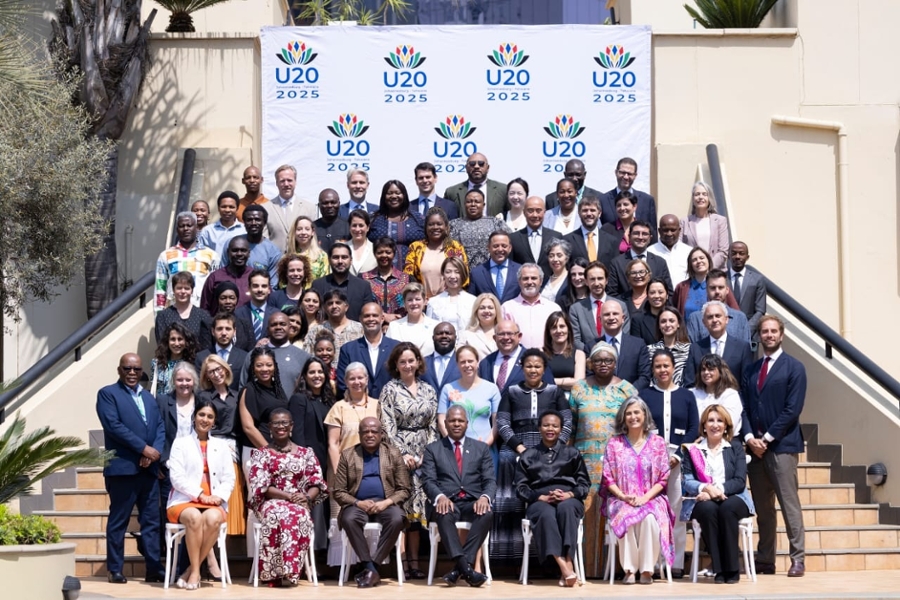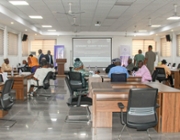First African Urban20 Summit

26 September 2025
CLGF was delighted to be invited to join the U20 Summit, convened by C40 Cities and the United Cities and Local Governments, which brought together more than 30 city leaders. The U20 is one of the key platforms for influencing and informing the G20 summit of world leaders which will be hosted by South Africa at the end of November. The meeting also brought together thematic experts and other stakeholders in a number of focused panel sessions on key themes linked to the political dialogues.
Outcome document
Following a preparatory meeting held in Tshwane in June, which convened almost 30 cities from G20 countries, the Summit agreed an outcome document U20 communiqué endorsed by 39 cities including Johannesburg, Cape Town, Tshwane, Accra, Rio de Janeiro, Tokyo, Paris, London, New York and Sydney. The document sets out a vision for “enhanced multilevel cooperation and renewed global collaboration” with cities at the centre of decision-making.
Fiscal pressures
The communiqué reinforces how cities are indispensable partners to national governments. With more than 55% of the world’s population living in urban areas, cities are where innovation, economic activity and social life converge. “Without cities, national strategies remain abstract. With them, they gain purpose and impact”
The discussions at the meeting focused on the severe financial challenges facing cities, particularly in Africa, where urban populations are projected to grow by 950 million by 2050. Fiscal pressures make it difficult for cities to plan, respond to emergencies, and to meet the needs of rapidly growing populations with essential services.
Scaling up investments
The U20 also called for the integration of cities into global climate and development planning, including national climate strategies and just transition plans. Part of this should mean the scaling up of investment in urban mitigation and adaptation projects, as well as direct access to multilateral climate funds for cities. Local economic development, the circular economy and green jobs, were highlighted in the communique as a cornerstone of sustainable cities, which should also be reflected in greater financial empowerment of municipalities including around progressive taxation and fair user charges.
Affordable housing
Housing was a major part of the discussions, both as social protection, but also as a foundation of urban resilience. The communique emphasises the need for more affordable, safe and energy efficient housing, which should include giving cities greater legal authority with respect to land and housing policy, as well as mobilising resources to increase supply.
In addition to these three central pillars there were calls to address migration, displacement and urban inclusion; urban mobility; air-quality; health and well-being; and the growth of and influence of technology.
Hon Velenkosini Fiki Hlabisa, Minister of Co-operative Governance and Traditional Affairs, South Africa will be part of the South African delegation at the G20. On receiving the U20 outcomes he stated that they are a “reflection of our own local priorities, refined and reinforced on the global stage”.
The U20 was co-chaired by the Mayors of Johannesburg and Tshwane, Mayor Dada Morero and Mayor Naiphi Moya. Mayor Moya emphasised that the communiqué presented to the G20 is about action and it demands “the three pillars essential for cities to succeed: genuine multilevel governance, strengthened multilateral cooperation and most critically, the financial empowerment to deliver on climate action, affordable housing and quality public services”.
Increasing focus on sustainable urban development
Lucy Slack, Secretary-General of CLGF welcomed the targeted communique adopted in Johannesburg and highlighted that it aligns with the work that CLGF and other Commonwealth partners are doing to increase the Commonwealth’s focus on sustainable urban development, framed in the Commonwealth Declaration on Sustainable Urbanisation. She said she is looking forward to working closely with Commonwealth and other partners and stakeholders to strengthen multi-level governance, to better deliver for citizens across the Commonwealth, in line with both the Declaration and the outcomes of the U20.
Back to News





